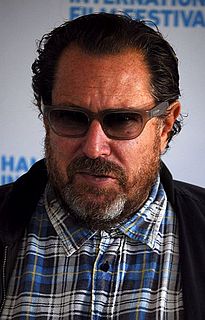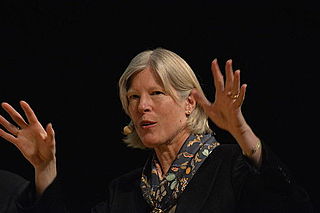Top 23 Photosynthesis Quotes & Sayings
Explore popular Photosynthesis quotes.
Last updated on November 8, 2024.
One of the skills of a journalist, though, is to find people who can teach him what he needs to know. So instead of taking courses, I've been very lucky in that I found teachers - scientists, especially - who were willing to teach me what I needed to know, whether it was about genetically modified crops or how photosynthesis works, and so on. I just find my teachers and don't have to pay for my education.
Four elements, Hydrogen, carbon, oxygen and nitrogen, also provide an example of the astonishing togetherness of our universe. They make up the "organic" molecules that constitute living organisms on a planet, and the nuclei of these same elements interact to generate the light of its star. Then the organisms on the planet come to depend wholly on that starlight, as they must if life is to persist. So it is that all life on the Earth runs on sunlight. [Referring to photosynthesis]
If you don't understand how something works, never mind: just give up and say God did it. You don't know how the nerve impulse works? Good! You don't understand how memories are laid down in the brain? Excellent! Is photosynthesis a bafflingly complex process? Wonderful! Please don't go to work on the problem, just give up, and appeal to God.
There were certain things that grabbed my interest, such as photosynthesis, such as us living off plants and plants living off us. You look at everything in that light - so if I'm looking at ice cubes, I might start thinking about absolute zero, or Fahrenheit and Celsius. There's so much that can make me think about science.
Biological energy comes from the sun. Light energy harvested by photosynthesis in chloroplasts and phototropic bacteria becomes stored in carbohydrates and fats. This stored energy can be released by oxidative metabolism in the form of adenosine triphosphate (ATP) and used as fuel for other biological processes.
We can look at the way of improving the key biochemical processes like photosynthesis itself. A lot of energy is lost to keep the plant cool. So maybe we can think of building plants which are more resistant to heat. Genetically modified plants can be one answer and we can imagine more efficient plants, call them 'energy plants'. And I believe, contrary to what ecologists think, they can still be beautiful plants.
In nature the only source of energy is from the sun. So in ecological systems everything comes from the sun through the process of photosynthesis whereas now in human built environment our source of energy is from fossil fuels, renewable, wood energy or hydro-energy but it is not from the sun. So until we are able to operate and run a human built environment by imitating photosynthesis it will be a long while before we can have a true eco-system.
Originally, the atoms of carbon from which we're made were floating in the air, part of a carbon dioxide molecule. The only way to recruit these carbon atoms for the molecules necessary to support life-the carbohydrates, amino acids, proteins, and lipids-is by means of photosynthesis. Using sunlight as a catalyst the green cells of plants combine carbon atoms taken from the air with water and elements drawn from the soil to form the simple organic compounds that stand at the base of every food chain. It is more than a figure of speech to say that plants create life out of thin air.




















